The history of Bulgaria is studded with many memorable dates. Some of them are public holidays, but they are more than days off work when you can take a break, they are days for reflection. Because freedom should not be taken for granted, in the history of the country it was earned at the cost of much sacrifice and suffering.
On 3 March, 1878 (19 February, old style) the peace treaty of San Stefano put an end to the Russo-Turkish war of liberation. Bulgaria became an autonomous principality, comprising extensive lands, earlier recognized by the Sultan as part of the Bulgarian Orthodox Exarchate. But the euphoria of the signing of this treaty was fleeting – it was a preliminary document and subject to revision. Such a revision was made a few months later, in July, 1878, when, at the Berlin Congress, the Great Powers of Europe decided to divide Bulgaria up into three, leaving, within its bounds, only the small Principality of Bulgaria (Northern Bulgaria and the region of Sofia), a vassal state to the Sultan.
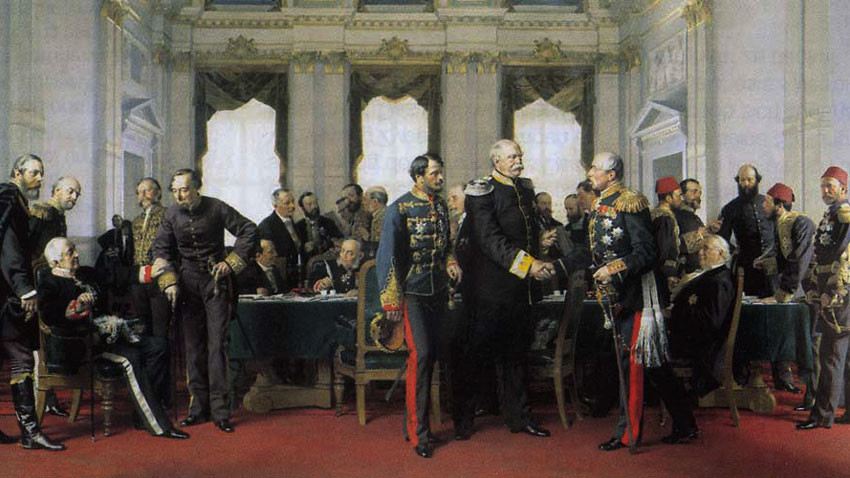
Eastern Rumelia, an autonomous province of the Ottoman Empire, joined the Principality in 1885. Macedonia and other lands were handed back to the Ottoman Empire. It was only 30 years later that Bulgarians received a small compensation for this injustice. On 22 September, 1908, Prince Ferdinand (proclaimed Tsar on this date) proclaimed, by manifesto, the Principality an independent Bulgarian Kingdom. This took place in the old Bulgarian capital Turnovo, as a symbolic act – that it was heir to the Second Bulgarian Kingdom, which existed up until the end of the 14th century.
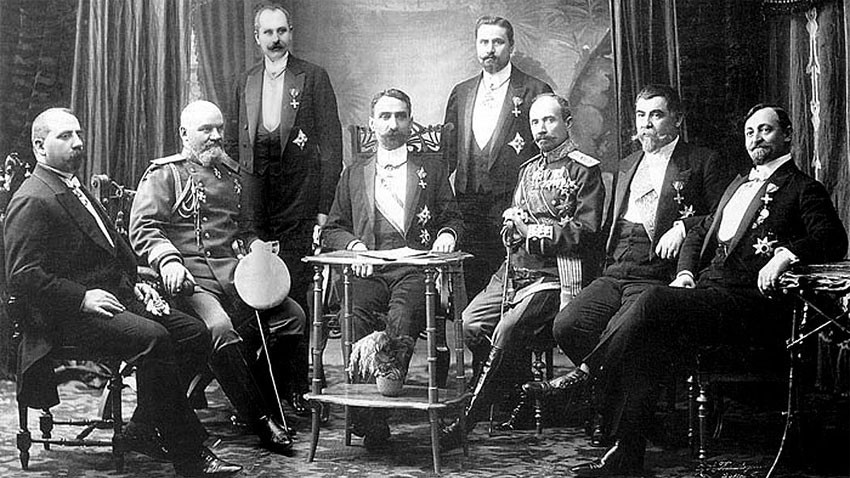
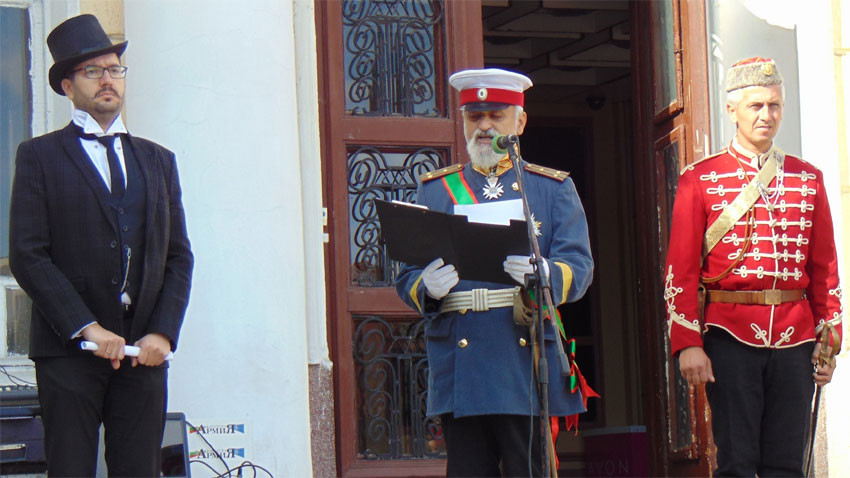
On 19 February, 1878 we broke the chains which had tied Bulgaria, once so great and glorious, as a slave for so many centuries.Thereafter, for more than thirty years the Bulgarian people, preserving the memory of those who toiled for their liberty and inspired by their tradition, have worked without rest for the progress of their beautiful land, and have created, under my leadership and the leadership of the late Prince Alexander, a state that can become an equal member among the family of civilized nations. My people have been always peace-loving and have always longed for cultural and economic progress. In this endeavor, nothing shall stop the progress of Bulgaria, nothing shall hinder her success.This is the desire of my people, this is their will. Being de facto independent the Bulgarian state is impeded in her normal and peaceful development by certain illusions and formal limitations, which as a result cool the relations between Turkey and Bulgaria.
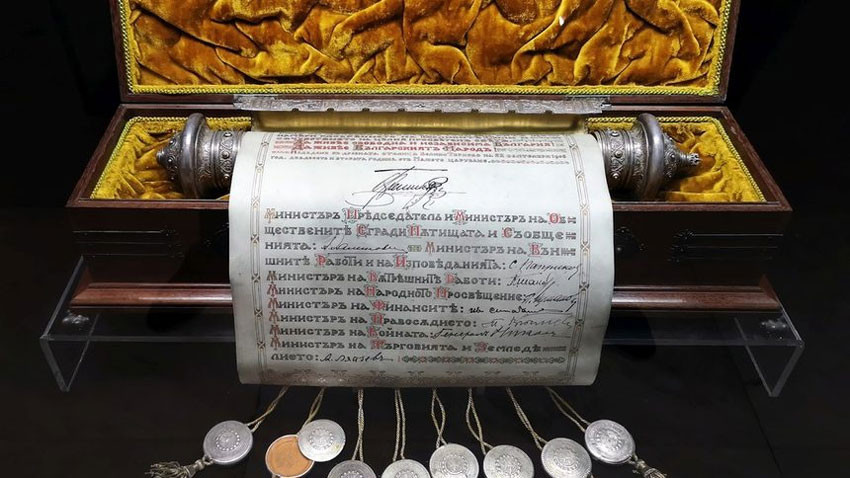
Long live independent Bulgaria! Long live the Bulgarian people!
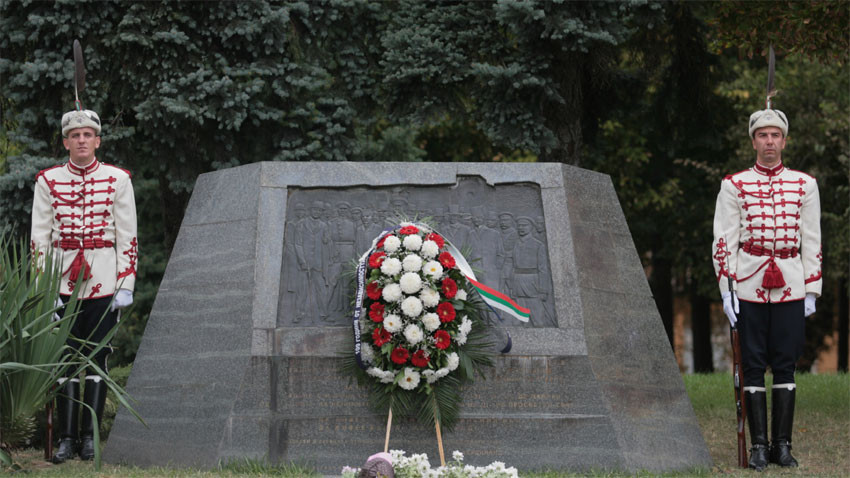
From that day on Bulgaria was able to pursue an independent foreign and economic policy, and look after the interests of its citizens inside the country, as well as those beyond its borders. The dream of several generations of Bulgarians of attaining unity grew more and more real, encouraging the Bulgarian people to continue to fight for their national ideal – that all of our compatriots may live in one country. Today, 110 years after that memorable day things have changed and the hopes and aspirations of Bulgarians may differ widely. But it is the unity in the name of one ideal – the ideal of independence of more than one century ago – that makes 22 September a day to be remembered.
English version: Milena Daynova
Today is Cheesefare Sunday. According to Orthodox tradition, this day is observed on the eve of Great Lent, when Christians seek and give forgiveness to each other . It is also known as Sirni Zagovezni because it marks the last day before Lent, when..
Priest Lyubomir Bratoev is a direct participant in the events of t he founding of the Bulgarian Orthodox Church community in Berlin . He came to the capital of East Germany in the late 1980s as a doctoral student. And, like a typical Orthodox Christian..
After nearly 35 years, the Bulgarian Orthodox Church Community in London has its own church in the central part of the British capital, in close proximity to the Bulgarian Embassy. There, in the prestigious Kensington district, next to Hyde Park and..

+359 2 9336 661
